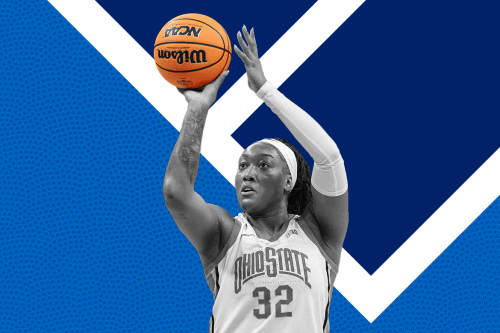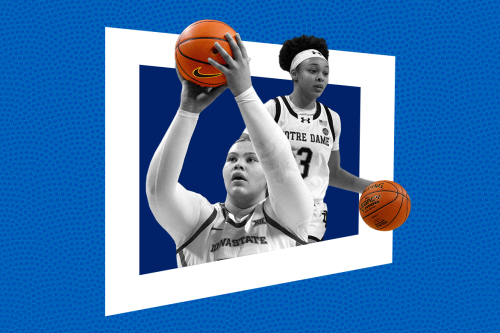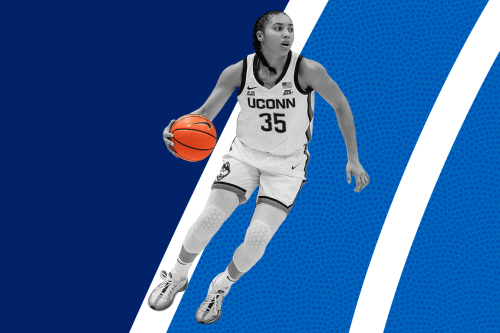How Jordan Marie Daniel Marries Running and Advocacy for Missing and Murdered Indigenous Women
Competitive marathoner Jordan Marie Daniel marries her passion for running with activism for Indigenous people.
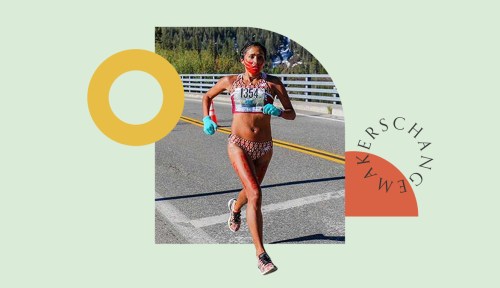
In 2019, Jordan Marie Daniel—a fourth-generation Indigenous runner and competitive marathoner—was fed up. She was tired of the lack of visibility for the violence happening in her community, particularly surrounding the issue of missing and murdered Indigenous women and girls, and she knew she needed to do something about it.
So at the Boston Marathon that year, she dedicated the 26 miles she ran to 26 missing or murdered Indigenous girls and women. She used red paint to cover her body with the letters “MMIW,” and placed a red handprint over her mouth to represent the violence in silencing her relatives’ voices. “Everything changed since then,” she says. “Everything now is very purposeful, and every run is a prayer. I still truly believe that I’ll be able to reach my goals and hopefully still qualify for the Olympic marathon, but now my running has a purpose.”
Below, we spoke with Daniels about her running, her advocacy work, and how she continues to marry the two in a way that’s positive for both her community and for herself.
Well+Good: What inspired you to run the Boston Marathon to raise awareness about missing and murdered Indigenous women and girls?
Daniel: It was a culmination of events. Prior to that, I’d kept my running and my advocacy very separate, but it was because of that lack of visibility and feeling like Indigenous women were disposable and mistreated and just invalidated and invisible to everybody, that I [wanted to combine the two]. I had seen other runners use their platforms to speak about things they care about like anti-doping or being a mother or other social justice efforts, and that all really just inspired me to start something new.
W+G: What was the experience like on the day of the actual marathon?
Daniel: I honestly had no idea that people would care except Indigenous peoples. I wanted this run to be about them—it wasn’t about a fast time or anything other than just being on the course and offering these prayers—and the whole time it was very surreal and emotional. The course went by really fast, and it was really repetitive saying their names and offering prayer for the community at each mile. It was the best thing I’ve done in my life—the easiest run I’ve ever done.
W+G: You were involved in advocacy work long before the 2019 Boston Marathon. How did you get started as an advocate?
Gold Medal Couple Tara Davis-Woodhall and Hunter Woodhall Talk Marriage, Motivation, and Their Next Chapter With Nike

Coach Kara Lawson Wants You to ‘Handle Hard Better’—and Here Are 3 Ways to Do Just That
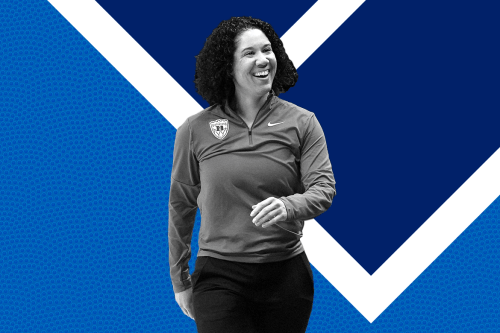
JuJu Watkins Leaves March Madness With ACL Tear—and This Knee Injury Is More Common Than You Think
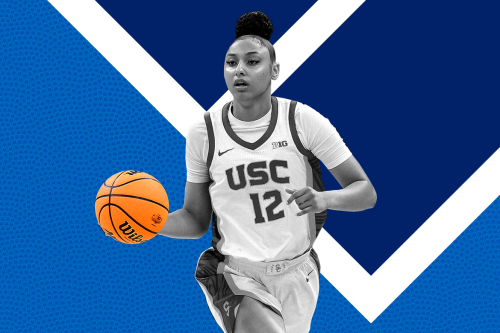
Daniel: I began my foundation, Rising Hearts, in 2017, but the first experience that I had intersecting running with advocacy was in 2016 when I organized a March in Prayer Run Ralley to welcome the Standing Rock youth who ran over 2,000 miles from North Dakota to Washington DC. After seeing the youth use running as a way to communicate something so powerful and important, I had an epiphany and wondered how else I could be involved and hold myself accountable to be a better relative. They really inspired me to become an advocate and a community organizer.
W+G: How do you marry your activism work with your passion for running?
Daniel: I think running has become a platform to continue these conversations and to bring in the things that we’re most passionate about. We’ve hosted 10 virtual runs, and have been able to donate over $155,000 back to Indigenous and Black-led organizations that are focused on social justice areas. The virtual run platforms are very informational and give people resources like Podcasts, book suggestions, and reports so that they can learn more about what they’re running for.
We also have a running with purpose collective where we have 30 athlete advocates who are all passionate about social justice and specific issues that they run and fight for. So this is a collective where we’re trying to transform the running and outdoor industry to commit to more purposeful and meaningful justice, equity, and inclusion efforts.
W+G: Why has it been so important for you to create a safe space for other runners?
Daniel: Runner safety, in general, is very much at the forefront of everything we do. A lot of the time these systems were designed and created without really thinking about what it’s like to be an Indigenous, Black, Asian, Muslim, two-spirit, or LGBTQ person, or a person with disabilities, to come into these spaces where they may not feel safe or included. A lot of the time sadly we see people experiencing racism and violence on their runs or walks in public space, and then you have people standing there and watching it happen or just walking away. So our purpose is about creating a much greater awareness of what it’s like to be someone coming from these communities, and have people recognize that this is happening every single day and that they should have the responsibility to step in and offer protection.
W+G: How do the changing conversations around sport and mental health inform what you do?
Daniel: We need to include these conversations of wellness when we talk about advocacy because I think that was something I was very naive to when I first started on this path. When I did the Boston Marathon run, I didn’t expect to struggle so much mentally and emotionally—I figured I’d be able to shake it off and be sore for a couple of days, and then I’d get over it. But when I started doing all my races as prayer runs, I was going into them exhausted because I was spending a week or two doing research on missing and murdered relatives, reaching out to their friends and family to get permission to say their names, and reading these horrible stories of what was happening in the community. I was carrying around this emotional load going into a race, and I was then trying to perform at my best while feeling drained.
Then, I would do it again a few weeks later, and never had time to detach myself and be able to heal in a good, healthy way that worked for me. We’re starting to see athletes talk about the pressure and the spotlight we get on us, and the fact that we don’t really have any ways to take care of ourselves privately—it feels like we have to do everything publicly, and then we’re suffering in silence. It’s been such a taboo thing to talk about, but I think the conversation right now is helping to normalize that mental health is critical to your wellbeing not only as an athlete—but as a person.
Oh hi! You look like someone who loves free workouts, discounts for cutting-edge wellness brands, and exclusive Well+Good content. Sign up for Well+, our online community of wellness insiders, and unlock your rewards instantly.
Sign Up for Our Daily Newsletter
Get all the latest in wellness, trends, food, fitness, beauty, and more delivered right to your inbox.
Got it, you've been added to our email list.
